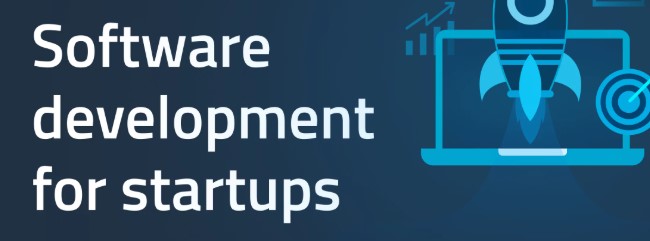Software Development for Startups: A Complete Guide to Building Smart and Scalable Solutions
Keywords: software development for startups, startup app development, MVP software, custom software for startups, tech startups
Startups thrive on innovation, speed, and adaptability—but none of that’s possible without the right technology. Whether you’re launching a SaaS platform, a mobile app, or an internal tool, software development for startups is about building lean, scalable, and smart solutions that align with business goals and user needs.
In this blog post, we’ll cover everything a startup founder or tech lead needs to know—from planning to development to scaling.
Why Software Development is Crucial for Startups
For startups, software isn’t just a tool—it’s the core of the business. Whether your startup is in fintech, healthtech, or e-commerce, your software defines how users interact with your brand.
Benefits of Good Software Development:
- Faster time to market
- Cost efficiency through smart planning
- Scalability as your user base grows
- User satisfaction through good UI/UX
- Competitive advantage in your niche
Key Stages of Startup Software Development
1. Ideation and Planning
Every successful software product starts with a solid plan.
Key Activities:
- Define your problem and solution
- Create user personas
- Analyze competitors
- Map out a feature set (MVP vs full product)
🛠 Tip: Don’t build everything at once. Focus on the Minimum Viable Product (MVP) first.
2. Choosing the Right Tech Stack
Pick a stack based on your product type, scalability goals, and development team.
Popular Tech Stacks for Startups:
- Web Apps: MERN (MongoDB, Express, React, Node.js), Django + React
- Mobile Apps: Flutter, React Native, Swift (iOS), Kotlin (Android)
- Backend APIs: Node.js, Django, Laravel
- Databases: PostgreSQL, Firebase, MongoDB
🧠 Choose technologies your developers are comfortable with, unless you have a specific technical need.
3. Building the MVP
An MVP (Minimum Viable Product) is the most basic version of your software that still delivers value.
Focus on:
- Core functionality
- Clean and simple UI
- Collecting user feedback
🚀 Your goal is to launch fast and learn faster.
4. UI/UX Design
Startups live or die by user experience. Invest in good design early.
Best Practices:
- Use design tools like Figma or Adobe XD
- Keep interfaces intuitive
- Make navigation easy
- Follow platform-specific design guidelines
5. Agile Development and Testing
Use agile methodology to break development into sprints. This helps you stay flexible and pivot when needed.
Include:
- Regular sprint planning and reviews
- Automated and manual testing
- Bug tracking tools like Jira or Trello
🐞 Fix bugs early—it’s cheaper than fixing them later.
6. Launch and Deployment
Use cloud platforms like AWS, Azure, or Vercel to deploy your app. Monitor usage closely post-launch.
Tools for deployment & monitoring:
- GitHub Actions, Docker, Kubernetes
- Google Analytics, Sentry, or New Relic for error monitoring
7. Post-Launch Support & Scaling
Once users start using your product, real challenges begin.
Post-launch strategy:
- Collect user feedback
- Push regular updates
- Monitor app performance
- Optimize for speed and scalability
In-House vs Outsourcing Development
| Option | Pros | Cons |
|---|---|---|
| In-house | Full control, cultural fit | High cost, longer hiring time |
| Outsourcing | Cost-effective, faster start | Less control, time zone differences |
👥 Hybrid models like hiring a dedicated remote team can be a smart middle ground.
Common Mistakes to Avoid
- Skipping MVP and building too much
- Ignoring market feedback
- Overengineering instead of solving real problems
- Poor project management leading to delays
- Underestimating budget and time
Final Thoughts
Software development for startups is not just about writing code—it’s about building solutions that solve real problems in innovative ways. With smart planning, the right team, and continuous learning, your startup can build tech that scales with your business.
Start small. Move fast. Keep learning.
